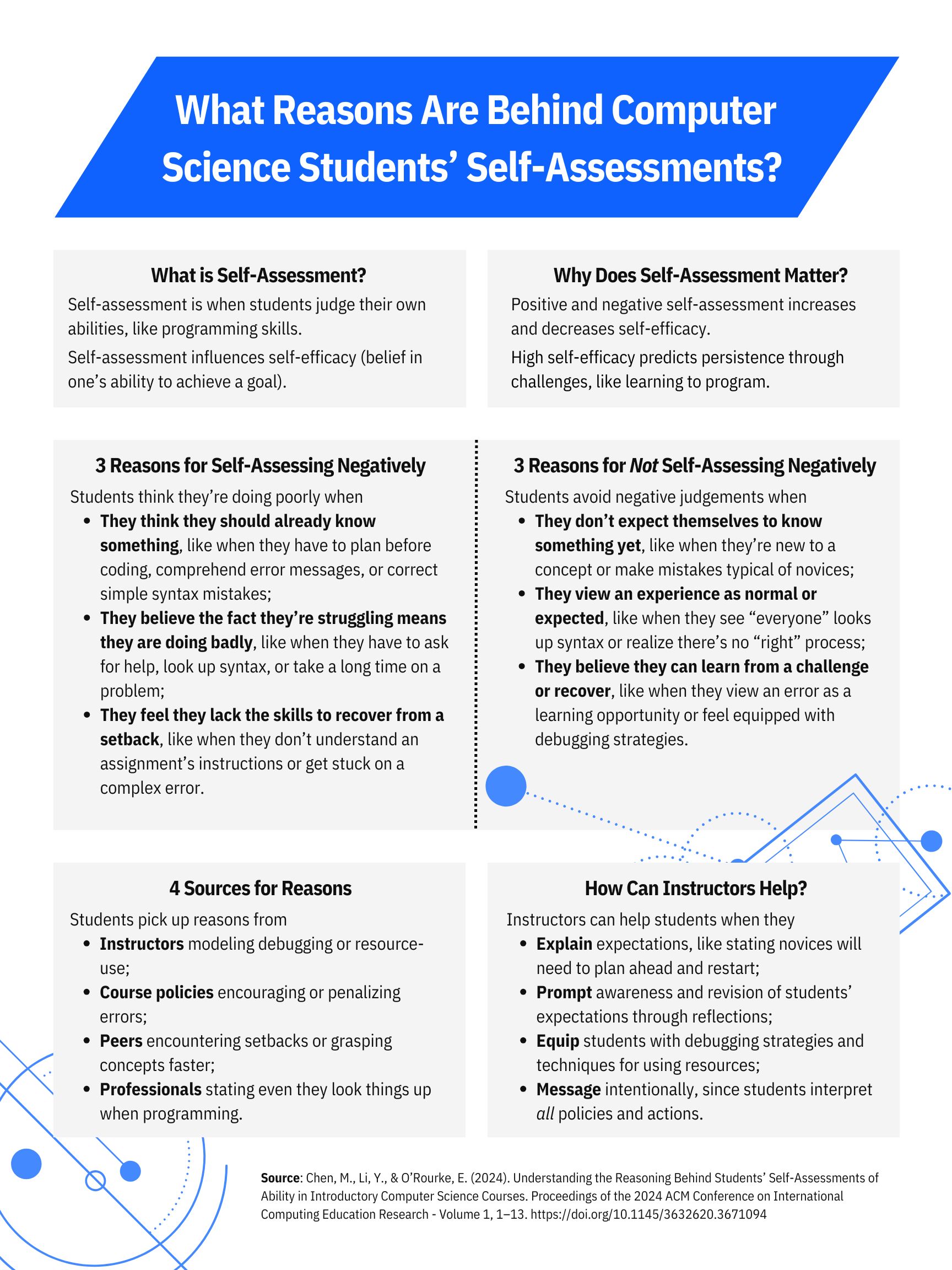Learning to program is notoriously difficult. Students encounter many setbacks, ranging from simple syntax errors to deeper conceptual misunderstandings. How students assess themselves during these setbacks impacts their self-efficacy — how much they believe they can learn to program. Low self-efficacy suggests low motivation for learning to program and ultimately predicts students’ decisions to leave computing.
A recent study by researchers at Northwestern University's Delta Lab uncovered some of the reasons behind computing students' self-assessments and potential sources for students' reasons. Understanding these reasons may enable us to prevent students' negative self-assessments, increasing persistence in computing. The infographic below summarizes the study's insights.
The creation of this infographic was aided by a generative artificial intelligence tool but was designed and fact-checked by me.
